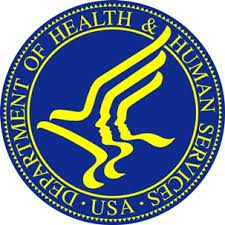- Bone Health
- Immunology
- Hematology
- Respiratory
- Dermatology
- Diabetes
- Gastroenterology
- Neurology
- Oncology
- Ophthalmology
- Rare Disease
- Rheumatology
Rumors of HHS Biosimilars Coding Change Spark Concerns
Worries about what HHS will propose in its anticipated biologics pricing reform policy have been exacerbated by a rumored coding change.
Rumors that HHS could calculate payment for biosimilars differently under a potential policy change have sparked concerns among providers and biosimilar developers.
If the rumors are correct, the Medicare Part B payment methodology for biosimilars would be overhauled for the second time in 4 years.
Currently, CMS bases payment for biosimilars on the average sales price (ASP) for the individual biosimilar and then adds an additional amount that represents 6% of the ASP for the reference product. This policy was established in 2018 and was thought to encourage biosimilar use in the marketplace, leading to lower overall costs of biologics and expanded access for patients.
Under the rumored policy change, payment rates for biosimilars in a particular class of therapeutics, such as trastuzumabs, would be based on ASPs of the biosimilars and their reference products, meaning 1 ASP would be calculated to represent all products, and payment would be based on that.
With some products having lower individual ASPs and some having higher ASPs, basing reimbursement on a single ASP would wreak havoc and drag overall pricing down, contends Ted Okon, MBA, executive director of the Community Oncology Alliance (COA). If the goal is to achieve lower prices for biologics, this would accomplish that, but it would also destroy incentives for biosimilar companies to participate in the market, he said.
“On a short-term basis, you will artificially drop biosimilar pricing through the floor, but the problem with that is it kills the market, because no one’s going to turn around and invest in new products,” Okon predicted.
Data suggest that, in their sixth year in the United States, biosimilars are achieving significant market share and price discounts from originator products, which shows that these lower-cost agents are a success.
“Why would you want to change that?” Okon asked. “This is a time when you don’t want to screw around and, possibly, put a major dent in the biosimilar marketplace.”
Again, there has been no official announcement of such a policy change, although an August 18, 2021, report from InsideHealthPolicy, a subscription-only news publication that claims to have inside information on federal government activities, stated that such a change is being contemplated and cited "a source who spoke to [HHS] department staff."
"Unique codes for biosimilars are essential to supporting demand and increasing sustainable competition in the biologics market," said Kathy Oubre, co-chair of the COA Biosimilar Committee and CEO of Pontchartrain Cancer Center. "This will ultimately lead to lower prices for Medicare and its beneficiaries over time. Although blended codes may provide short-term savings, the long-term result is fewer options in the marketplace resulting in less choice and higher prices for patients."
Much would be at stake in a switch to blended codes for payment, said Oubre, who is also a member of The Center for Biosimilars® Advisory Board. At Pontchartrain, biosimilar use and the savings accompanied with these agents have enabled 10% more patients to be able to afford access to life-saving treatments over the past 18 months.
Industry opponents of the rumored policy change have questioned the legality of such a move and argue that such an action may be beyond the statutory authority of HHS.
There was no immediate comment from the Association for Accessible Medicines, a trade group of biosimilar and generic manufacturers, which is awaiting an official announcement expected on Monday, August 23. It’s then that HHS is expected to respond to a request from President Joe Biden to offer ideas for bringing pharmaceutical prices under control.
Initially, biosimilars for an individual reference product were issued the same Healthcare Common Procedure Coding System (HCPCS) code, which meant that they were paid according to a common formula. The change that became effective January 2018 meant that they got individual HCPCS codes and were reimbursed according to individual biosimilar ASPs.
The policy change was popular with biosimilar manufacturers and was thought to offer pricing stability but also an incentive for more biosimilar producers to enter the marketplace.
Biden has been looking for ways to improve savings and rein in runaway prices for biologics, currently the fastest-growing drug category by costs. Specialty drugs, which include biologics and biosimilars, account for just 2.2% of total prescription volume but 49.5% of total spending in institutional and retail pharmacy settings, according to Vizient, a health care services and advisory company. Specialty pharmaceutical pricing is growing at a rate of 4.68%, the company said in its 2021 pharmaceutical spending outlook.
Among his directives concerning pharmaceutical pricing, Biden has asked the FDA to craft policies for safely importing prescription drugs from Canada, asked HHS to find ways to support the uptake of biosimilar and generic drugs, and asked HHS to counteract high prescription drug prices and “price gouging.” Biden has also asked the FDA to “ban” pay-for-delay agreements between drug manufacturers. These agreements delay the market entry of certain products and thereby extend the profitability of existing drugs.
Click here for the legal perspective on Biden’s proposed prescription drug pricing reforms.
For more about growing anticipation over the pending HHS pricing reform policy suggestions, click here.
Newsletter
Where clinical, regulatory, and economic perspectives converge—sign up for Center for Biosimilars® emails to get expert insights on emerging treatment paradigms, biosimilar policy, and real-world outcomes that shape patient care.


